Review: DallerGut Dream Department Store
A whimsical tale of dreams and their therapeutic powers - plus a little reflection.
Why do we sleep? A question posed by many, answered by few. Personally, I love hearing about dreams. It’s as though the subconscious has picked up the phone to get some things off her chest, and you probably want to pay attention otherwise she’ll just hit redial each night. Take action on what she’s telling - or sometimes yelling at - you, and you’ll be rewarded with growth and peace. The DallerGut Dream Department Store (DDDS) by Miye Lee, translated from Korean by Sandy Joosun Lee, is for those who enjoy these internal nighttime landscapes and take their self-development with a sprinkling of charm.
The Dream Department Store does what it says on the tin: it sells dreams. Dreams of all kinds and in special packaging. They are renown for the satisfaction of their sleeping customers and through their partnerships with dreammakers, all under the direction of Mr DallerGut, who excels as part-boss, part-wise-mentor. He is a spritely and thoughtful chap, instilling his passion for customer satisfaction with his employees, often at the expense of profits. Leading us into this world is wide-eyed, eager Penny, the Store’s newest employee, who lives in the same magical location as the Store - a “shopping village” that the outside world can only visit when they are asleep and will forget about when awake. Aside from the mystical nature of the product she now sells, Penny is like anyone else in a new job. The novel follows Penny as she progressively learns about the Store, its suppliers, and its customers. To some, settling in at a new job feels like a simplistic plot, but it is a necessary backdrop to support the moral and personal explorations that Miye Lee offers.
The novel finds this impactful depth through short stories of the Store’s customers, which are interwoven throughout Penny’s learning experience. We get glimpses of their daily lives, their troubles and challenges. Once they fall asleep and purchase a dream, often via personal recommendation from the shop’s employee’s, we get to see their narratives further unfold, break, mend, and how they react when awake.
One that remains with me - having worked in a creative retail industry and now through practising my own writing process - is one customer’s struggle with inspiration. An aspiring musician (referenced only as ‘the man’ in the passage), is suffering from burnout. His aspirations for a creative career have led to running multiple jobs and waning self-belief. When asleep, he appeals to the Store employees to sell him a dream about inspiration, quoting that other musicians have had similar dreams that lead to great success. Not only have the employees never heard of people like Paul McCartney, but there is a debate as to whether the man has had sufficient sleep to dream fully. Mr DallerGut later offers this perspective:
“‘Inspiration’ is a convenient word. It makes you feel like some grand ideas might come out of nowhere, as if from a blank slate. But in fact, a great idea hinges on how much time we spend agonising over it, and that's what makes all the difference: whether you spent enough time searching for the answer or not.”
These short narratives are reason enough to return to the book time and time again, as you might with a book of fairy tales. Together, they build up the picture of the Store and how it helps its customers over time, but read individually they are more morally guiding, in a poetic, fabled sense. There are lessons varying from trusting your instincts, to finding inspiration, to overcoming hardships, and more.
Similar translated novels also offer emotional contemplation in place of complex plot. Where DDDS (Korean) uses the mechanic of a shop selling dreams to help its customers, Before the Coffee Gets Cold (Japanese) has a cafe that offers time travel to aid its visitors, and What You are Looking for is in the Library (Japanese) features a librarian who can pair the perfect book to each customer (not unlike Vianne in Chocolat). But this focus on emotional attention doesn’t mean the world-building suffers. Instead, Miye Lee gives enough framework without overstuffing, allowing the reader to take what they need from the story. In DDDS, the world glimmers with intricacies: how dreams are paid for retrospectively with emotions; a clever contraption that keeps an eye on regular customers; brilliant dreammakers with names such as Yasnooz Otra, Wawa Sleepland, and Babynap Rockabye. But we know little to nothing of Penny or DallerGut’s life beyond the shop; instead of spending time on exposition of their lives, we are afforded that space to reflect on our own lives via the Store’s customers.
In my own reflections, I felt how strongly the act of selling dreams is directly parallel to bookselling. It seemed like every chapter offered a new comparison, like I was stepping back into a world I’d called home for over a decade. Honestly, I could write a whole post on this. DDDS has been one of those books that drops into your life just when you’re ready to consider the questions it offers. While I haven’t wanted that to cloud my review, it has made the whole process trickier. Sometimes it is the experiences at either end of the bell curve that are most difficult to reckon with. The joy and the heartache. Occasionally the two hand in hand. Assimilating your thoughts in the midst of these emotions is a challenge that I think Mr DallerGut would encourage everyone take on. He will of course have a dream to help with that too. If you’ve read DDDS or read it in future, I would love to know what reflections it sparks for you.
I respect that the parallels I saw between dreamselling and bookselling may have helped me fall in love with this book a smidge more than most - and if you love books you may find benefit here too. This, however, is a background note to Miye Lee’s broader, fascinating rumination on the experience of dreams. Its tone, also, can draw in readers of various genres. More literary readers may be interested in the clear water-clarity of its simple and direct prose, while fantasy readers at the whimsical end of the bookshelf will find intrigue in the magical elements. Not everyone is drawn to this style of writing, and that’s ok. But if it appeals even slightly, then I encourage you to add this to your list. We’ve all been a Penny, eager to learn and impress. We will always be customers, seeking guidance and advice. Perhaps some of us aspire to be a Mr DallerGut, or a Yasnooz, or one of the other unique characters of this world. I can see myself returning to this book at life’s forks in the road, for its lessons and guidance on navigating hard times. And to remember the importance of good sleep and dreams. While we may never remember if we visit DallerGut’s Dream Store when we wake up, I’ll be going to bed early, like a hopeful child awaiting Santa’s visit. Just in case.
If you enjoyed these, you’ll enjoy DallerGut Dream Department Store
Before the Coffee Gets Cold by Toshikazu Kawaguchi, translated by Geoffrey Trousselot
What You are Looking for is in the Library by Michiko Aoyama, translated by Alison Watts
Days at the Morisaki Bookshop by Satoshi Yagisawa, translated by Eric Ozawa
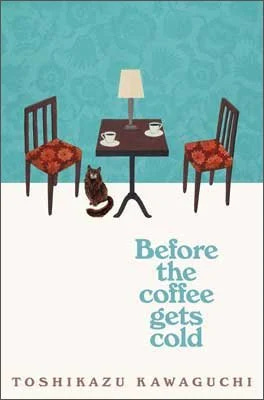

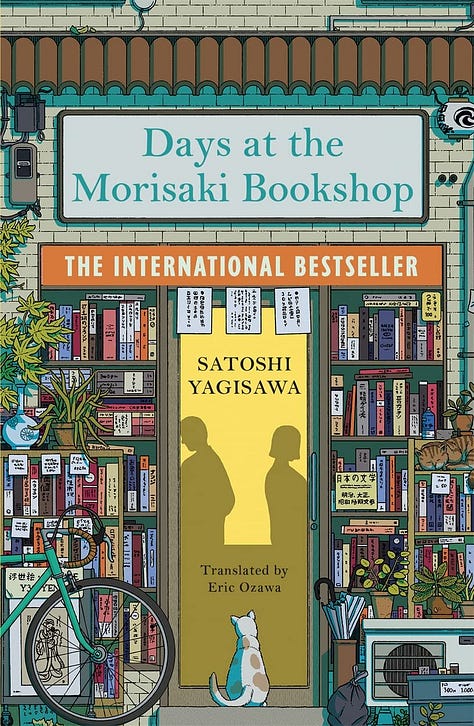
Added to my basket while researching this review:
The Kamogawa Food Detectives by Hisashi Kashiwai, translated by Jesse Kirkwood
Butter by Asako Yuzuki, translated by Polly Barton
The Ghost Cat by Alex Howard
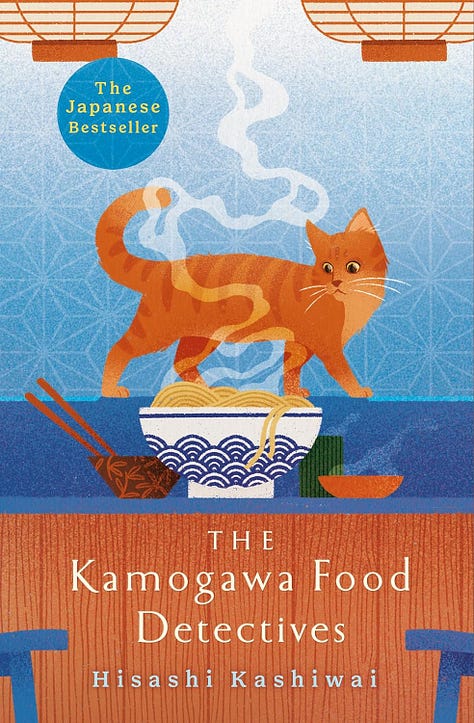
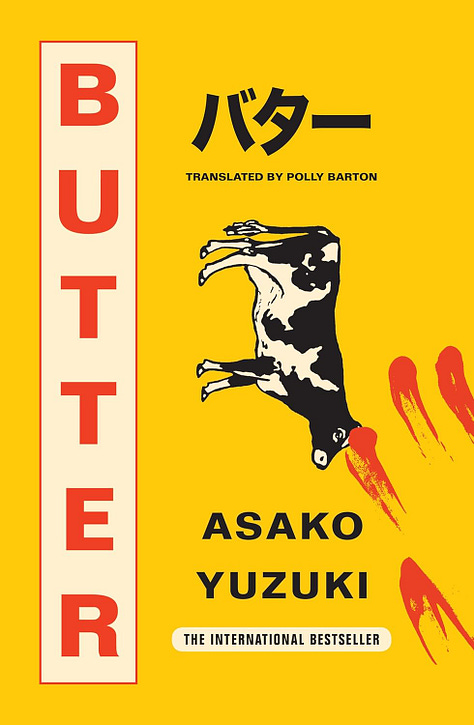
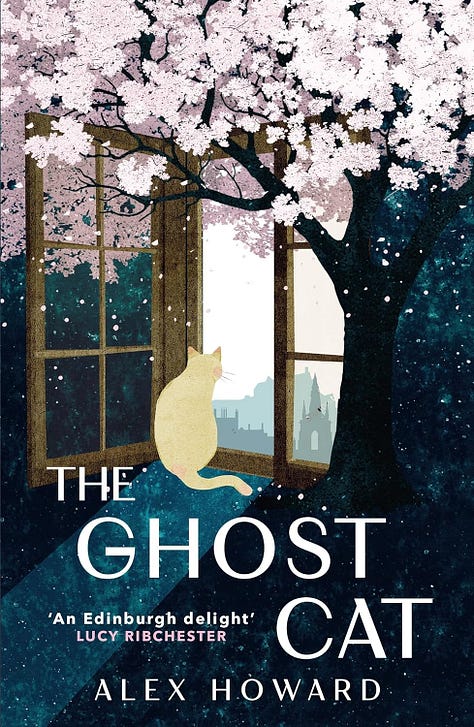
What else would you recommend?
Have you read this or any of the books listed? I’ll see you in the comments!




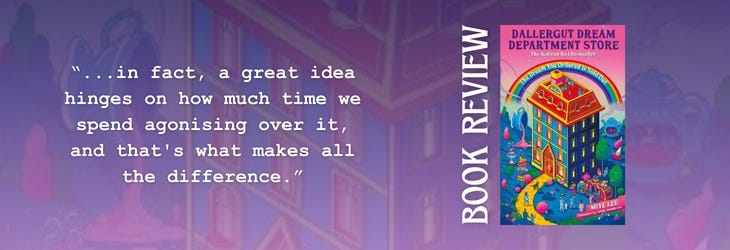
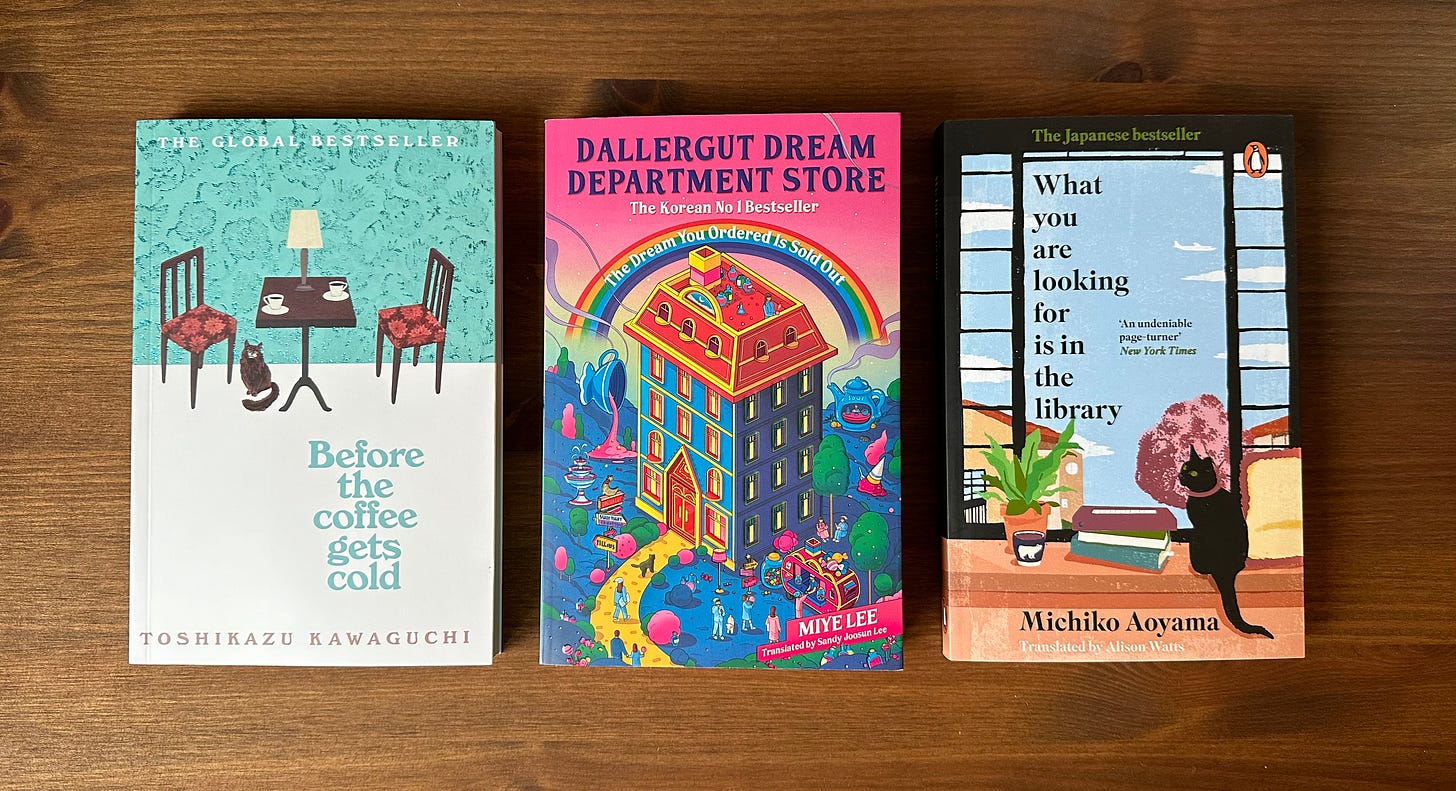
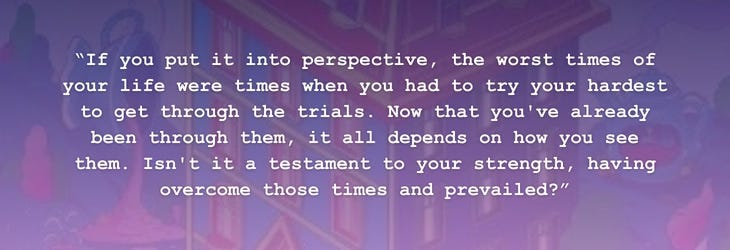
Oh I HAVE to read this!! I read Days at the Morisaki Bookshop this summer and loved it, it was so different to anything I’ve read before. I recently picked up Before The Coffee Gets Cold and it’s on my list for this month, and I reckon I’d love this too. Such a beautifully written review and you’ve deffo convinced me!!!